Yes, you can take hay fever tablets when pregnant - but some treatments should be avoided, according to doctors
A doctor shares the best advice for treating hay fever when you're pregnant
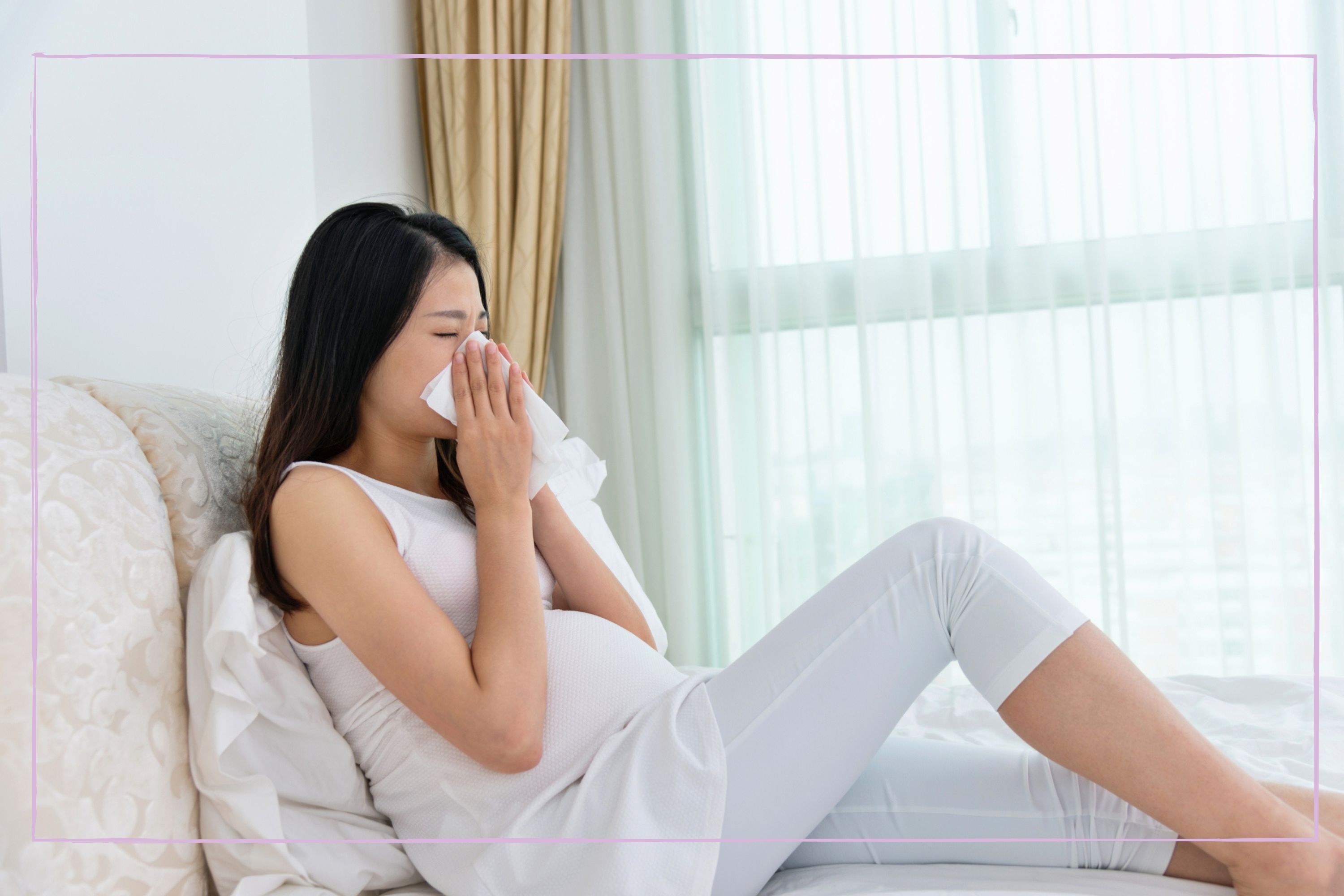

If you're pregnant and suffering with hay fever, you're probably wondering which medication you can take safely - experts share their advice on hay fever medication guidance during the three trimesters.
For many people, the warmer months bring those familiar hay fever symptoms. If you're pregnant, hay fever can be another uncomfortable ailment to contend with and might even leave you wondering if your baby will get hay fever symptoms when they arrive.
As medications you can take safely during pregnancy are limited you might want to try natural hay fever remedies to alleviate discomfort before turning to tablets, when the sneezing and itchy eyes begin. If these don't work, it's important to get any medication approved by a medical professional before you take it.
To understand more about hay fever in pregnancy, we spoke to Dr Alisha Esmail, who tells us "If you are pregnant and struggling with your hay fever, the reassuring news is that pollen and hay fever won't harm your baby. However, you might notice an increased sensitivity to pollen during pregnancy, which can affect your overall well-being and potentially lead to sleep disturbances."
She adds "When it comes to tablets, it's important to be cautious about the medications you take - not all hay fever tablets are safe during pregnancy." Dr Esmail shares which medication you can take, and further experts break down what you need to know about each one.
What is hayfever?
Hay fever is an allergic reaction to pollen, which is a fine powder released from plants. And 'hay fever season' - as it's known - usually lasts between late March and September. When the weather is warm, humid and windy, and pollen count is at its highest.
Typical symptoms include sneezing and coughing, a runny or blocked nose and itchy or watery eyes. You may also suffer with an itchy throat, mouth, nose or ears. And some people may also experience loss of smell, pain around your temples and forehead, and along with headache or earache.
GoodtoKnow Newsletter
Parenting advice, hot topics, best buys and family finance tips delivered straight to your inbox.
Can you take hay fever tablets when pregnant?
Yes some hay fever tablets are safe to take when pregnant. This is providing you have sought doctor approval before you begin taking them, as individual advice is always best practice.
Dr Esmail shares "In the UK, Loratadine (Clarityn) and Cetirizine (Piriteze) are generally considered to be the safest antihistamines to use through pregnancy and breastfeeding - but if you’re unsure, it's always wise to discuss the pros and cons with your doctor before taking any new medication.
Everyone is unique and has different health backgrounds, so the recommendations can vary from person to person. Ultimately, it is a personal decision as to whether you feel comfortable with any potential risks, however small."
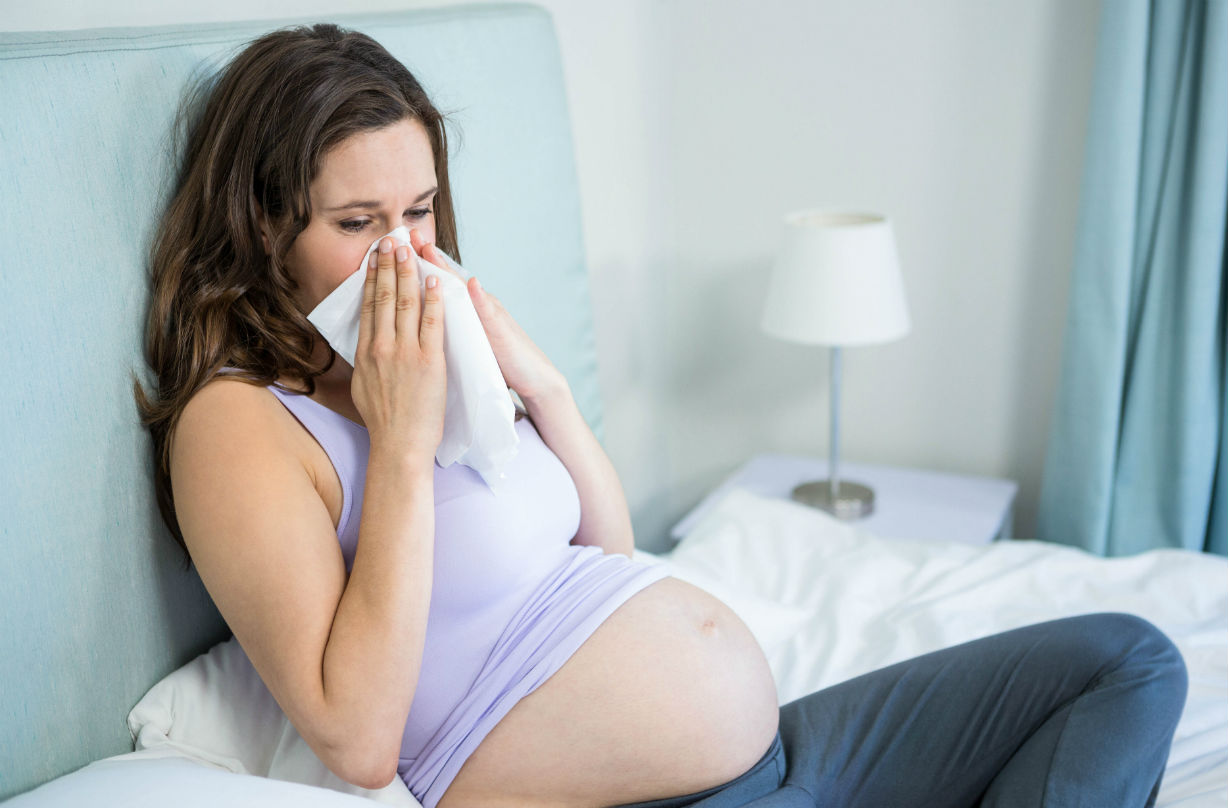
According to the NHS website, loratadine and cetirizine are often prescribed by medical professionals during pregnancy because they don't cause drowsiness.
"A non-drowsy antihistamine called loratadine is normally used first because there's more information to say that it's safe," the NHS states. "Chlorphenamine isn't normally recommended in pregnancy. There's no firm evidence that it's harmful to an unborn baby, but there isn't enough information to be sure it's safe."
Piriton and Pollenase are two such branded chlorphenamine antihistamines. So it's important to seek medical advice on taking these even if they're the tablets you took before pregnancy.
If your doctor or pharmacist advise that it is safe for your to take medication to treat your hay fever, make sure you know how to save on hay fever tablets to avoid overpaying unnecessarily.
Can I use nasal sprays while pregnant?
Yes, steroid nasal sprays can be used during pregnancy if you have tried to naturally reduce your hay fever symptoms without any luck, and checked with your GP first. Dr David Lloyd, a retired GP stresses that they should only be used during the second and third trimester.
He advises: "I would prescribe either Beconase nasal spray or Opticrom eye drops, depending on the individual's symptoms. This is because the medicines in eye drops and nasal sprays enter the blood stream in very small amounts. And therefore the dose of medicine that reaches the baby in the womb is very small."
Dr Esmail adds "For itchy noses and sneezing, saline nasal sprays can help & petroleum jelly dabbed on the nostrils can help to trap pollen particles. For troublesome eyes, often a damp cloth can calm things down, but if not, some eye drops may be trialled after speaking to your Pharmacist or GP."
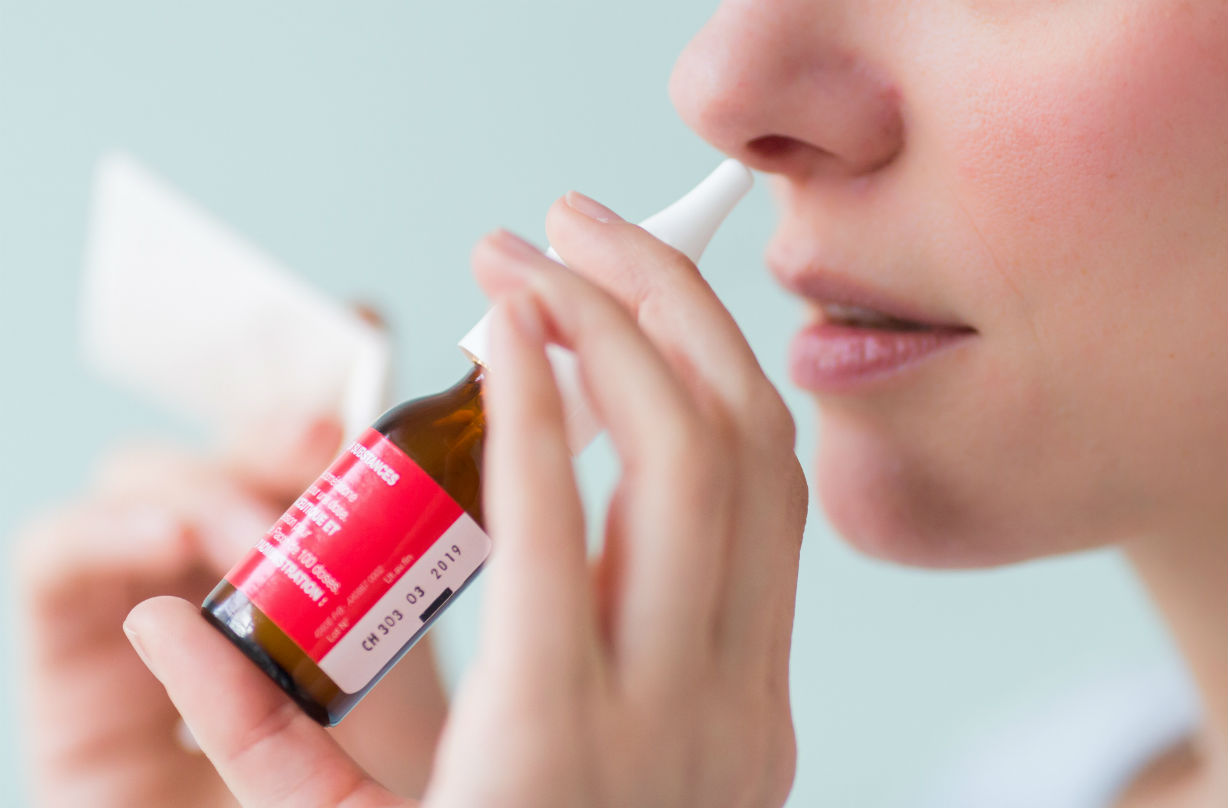
Is it safe to use decongestants during pregnancy?
No, it is not safe to use decongestants during pregnancy as they can lower the blood supply reaching both the baby and the placenta.
The reason for this is that decongestant medicines often contain pseudoephedrine. This helps to relieve a blocked nose by causing the blood vessels to narrow and reduce swelling. This in turn reduces the blood flow in the placenta and to your baby.
Decongestants are also not deemed safe to take post-pregnancy if you are breastfeeding. All experts agree that expectant mothers should talk to their doctor before looking to take hay fever medication when pregnant.
Does hay fever get worse during pregnancy?
Hay fever symptoms, like a runny nose, can feel worse in pregnancy due to the body changes that occur.
It might feel like your hay fever is worse during pregnancy, but this is due to the hormonal changes that occur in the body during pregnancy; these changes can exacerbate the symptoms of nasal congestion, which can make your hay fever symptoms feel more severe.
This is often a separate condition called "rhinitis of pregnancy" which can be confused for hay fever. It is due to hormones rather than allergens, resulting in a runny nose, which can appear similar to hay fever symptoms.
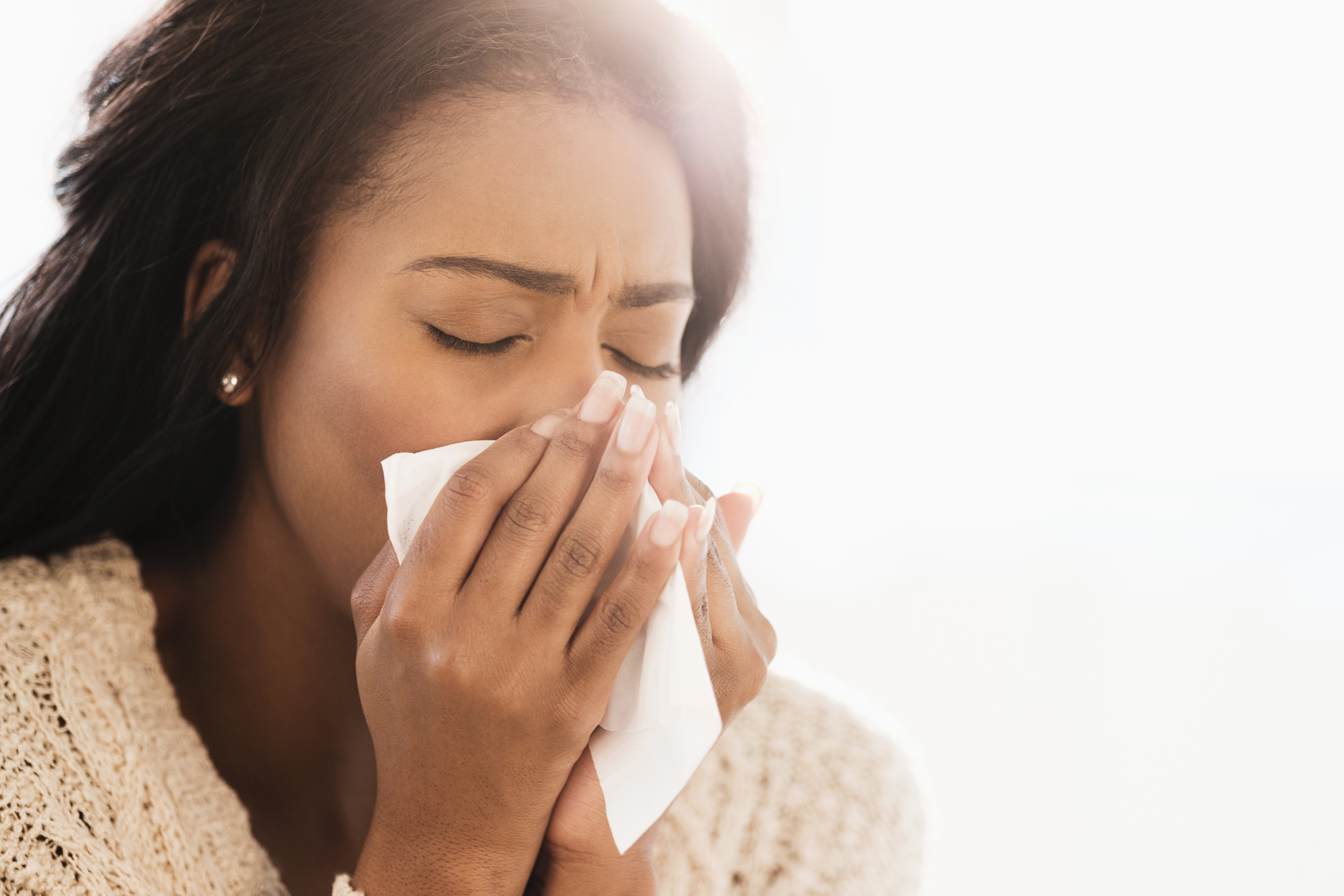
How can I reduce my hay fever symptoms?
Dr Esmail tells us "Some preventative measures you can take include showering and changing your clothes once you’ve been outside, to prevent carrying the pollen indoors.
On this front, it’s worth closing windows and doors too where possible, and dry your clothes indoors! Hoovering and wiping surfaces regularly will remove any pollen settling too."
The best ways to reduce hay fever symptoms are:
- Avoid being outdoors at certain times of the day - pollen count is highest during the middle of the day.
- Keep windows and doors shut - pollen travels in the wind and can easily get in through windows
- Dab some vaseline in and around your nose - the petroleum jelly catches pollen before you breathe it in.
- Wear wrap-around sunglasses - these will stop pollen getting in your eyes and causing irritation.
- Regularly wash hair and changes clothes - both are targets for trapped pollen.
- Shower before bed - this will prevent any pollen from transferring onto your bed sheets.
- Avoid hanging washing out to dry outside - pollen particles can attach to your clothes and be carried into the house.
For more on pregnancy, did you know your facial features may be influenced by what your mum ate during pregnancy? Meanwhile, we share the best pregnancy exercises and pregnancy exercise myths.
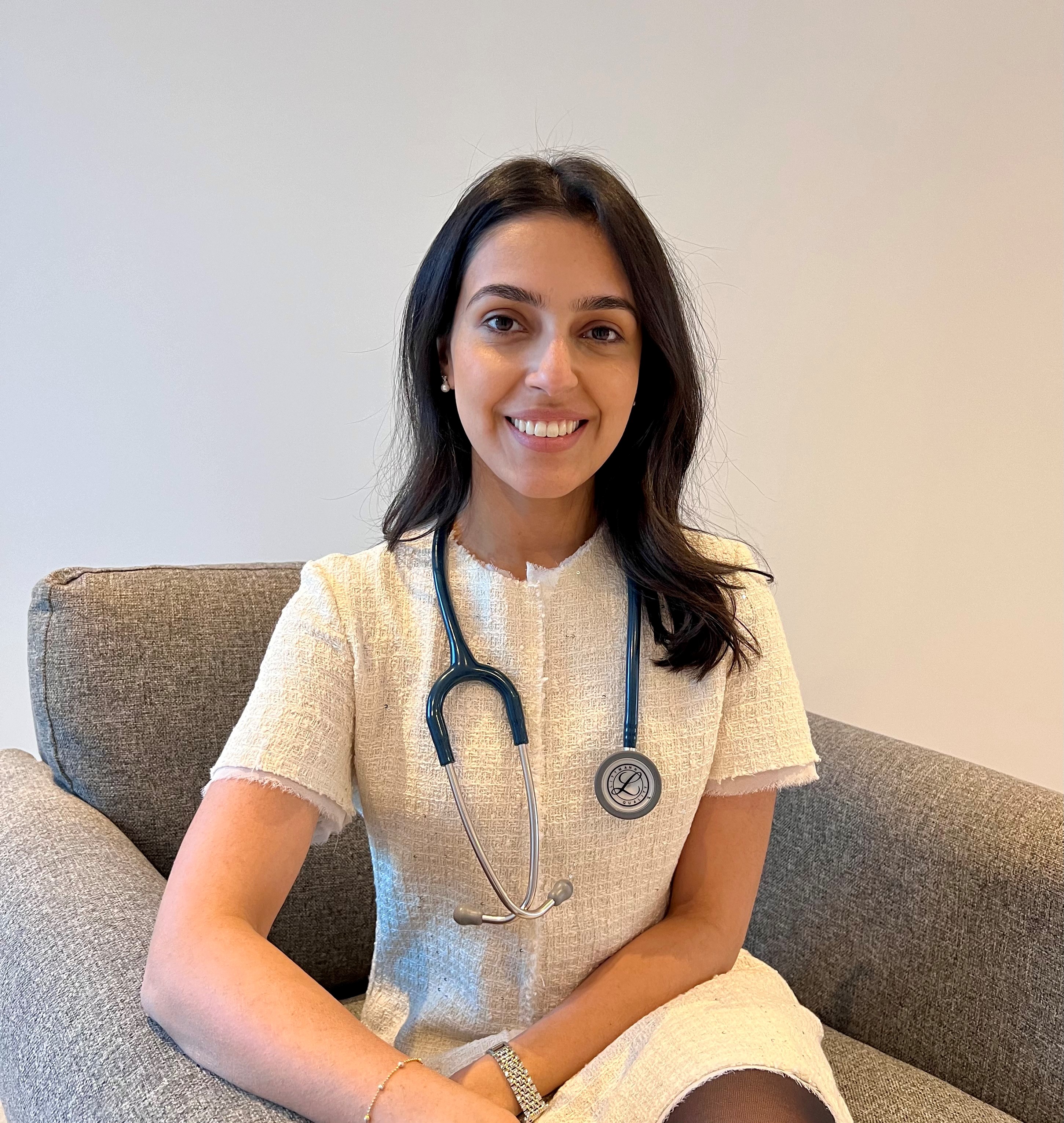
Dr. Alisha Esmail graduated with a Distinction in Medicine and Surgery from Imperial College London in 2016, having also completed an intercalated Bachelor’s degree in Reproductive Sciences (2014). She works in General Practice and has specialised in Women’s Health, for which she holds both a postgraduate Diploma in Obstetrics and Gynaecology (2021) and a Diploma in Sexual and Reproductive Health (2023). She also provides the fitting of Contraceptive Intrauterine devices and the Subdermal Implants (LOC IUT & SDI, 2023).

Lucy is a mum-of-two, multi-award nominated writer and blogger with six years’ of experience writing about parenting, family life, and TV. Lucy has contributed content to PopSugar and moms.com. In the last three years, she has transformed her passion for streaming countless hours of television into specialising in entertainment writing. There is now nothing she loves more than watching the best shows on television and sharing why you - and your kids - should watch them.